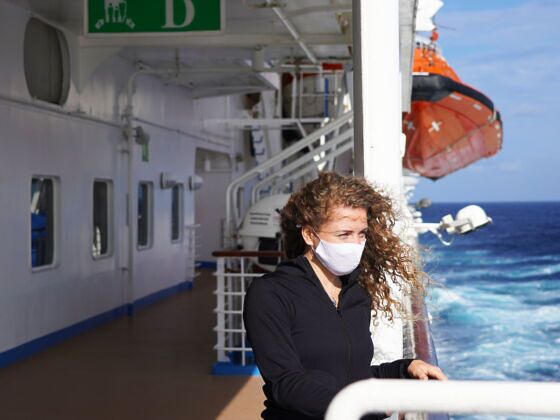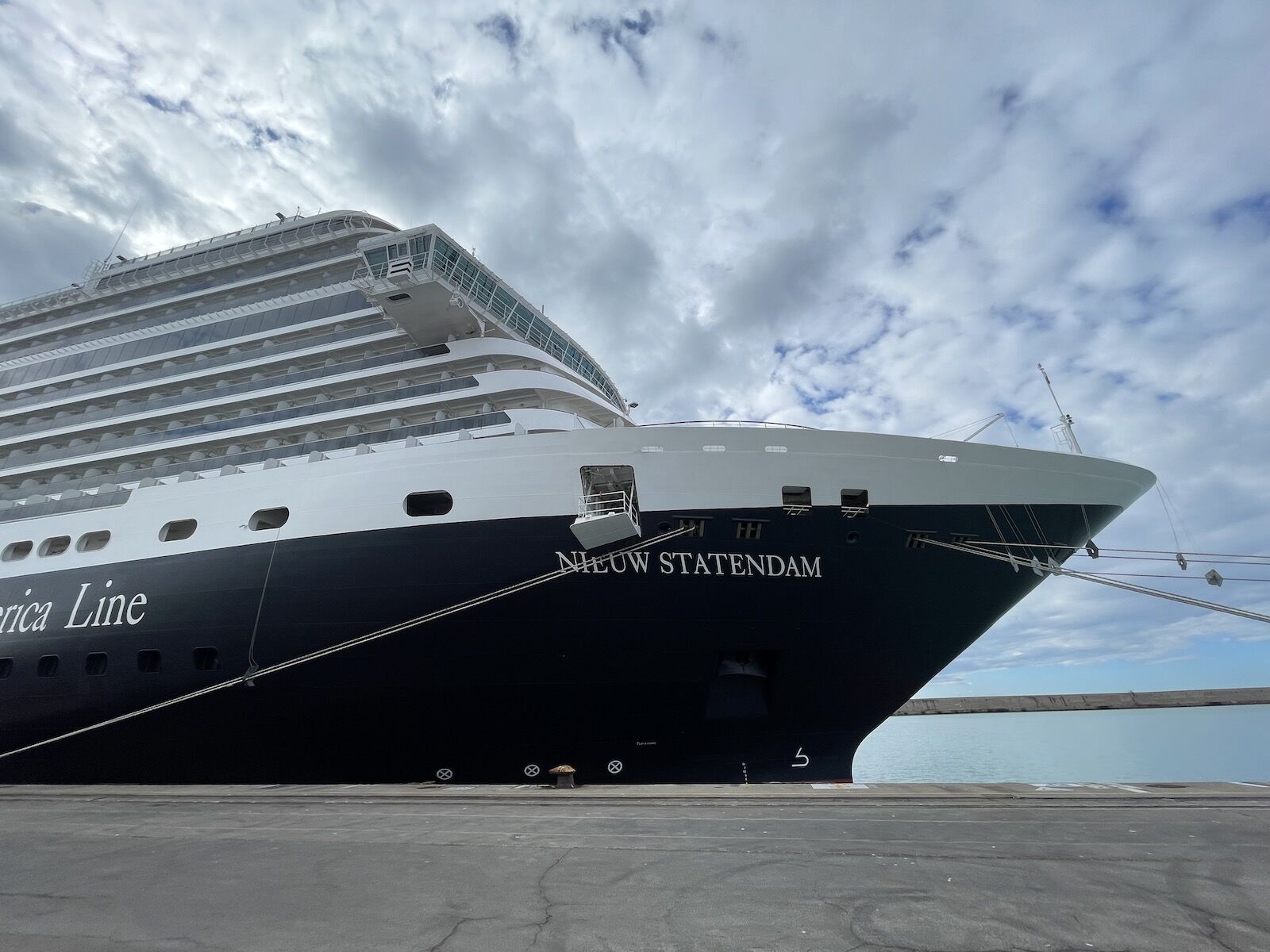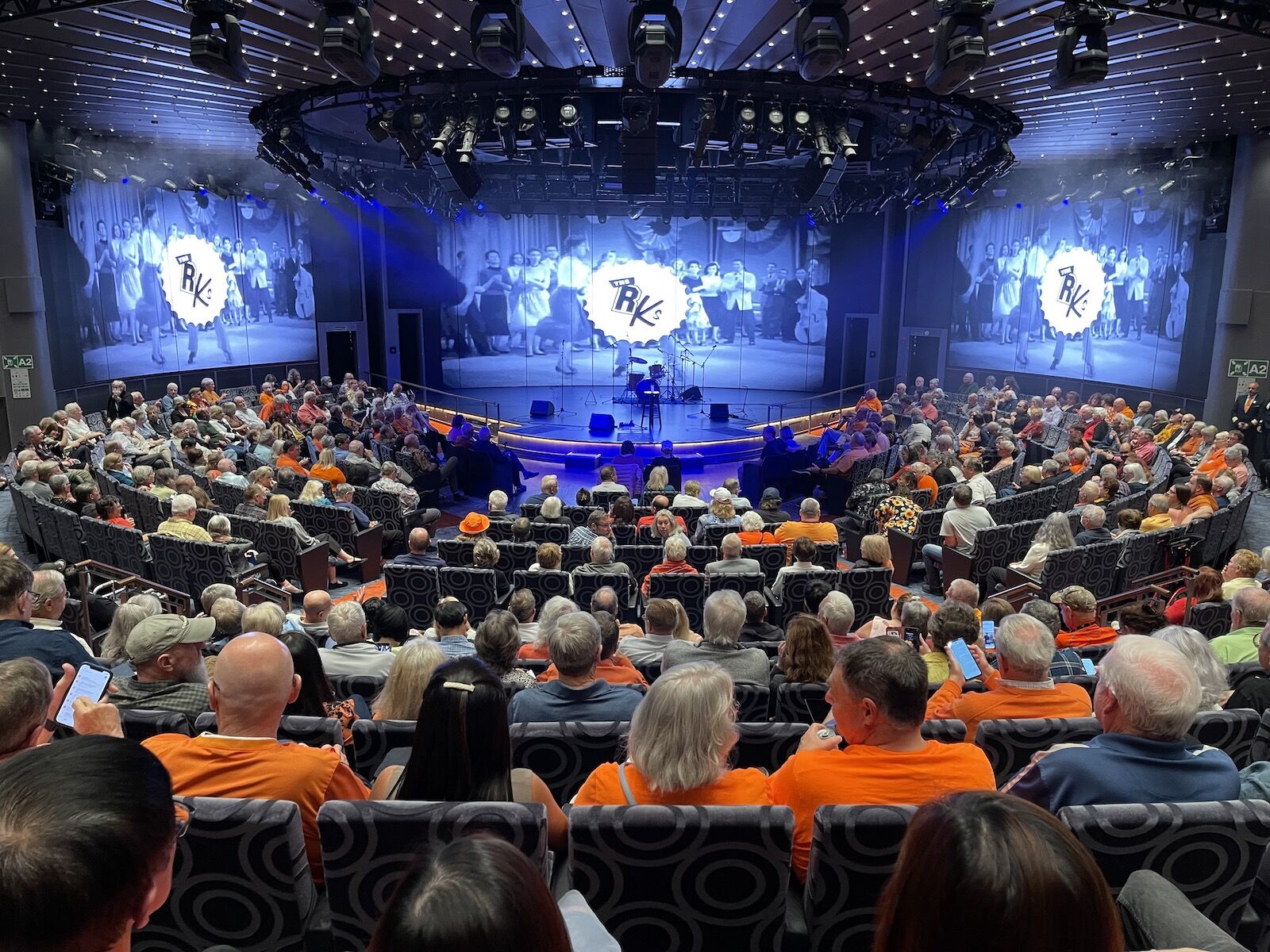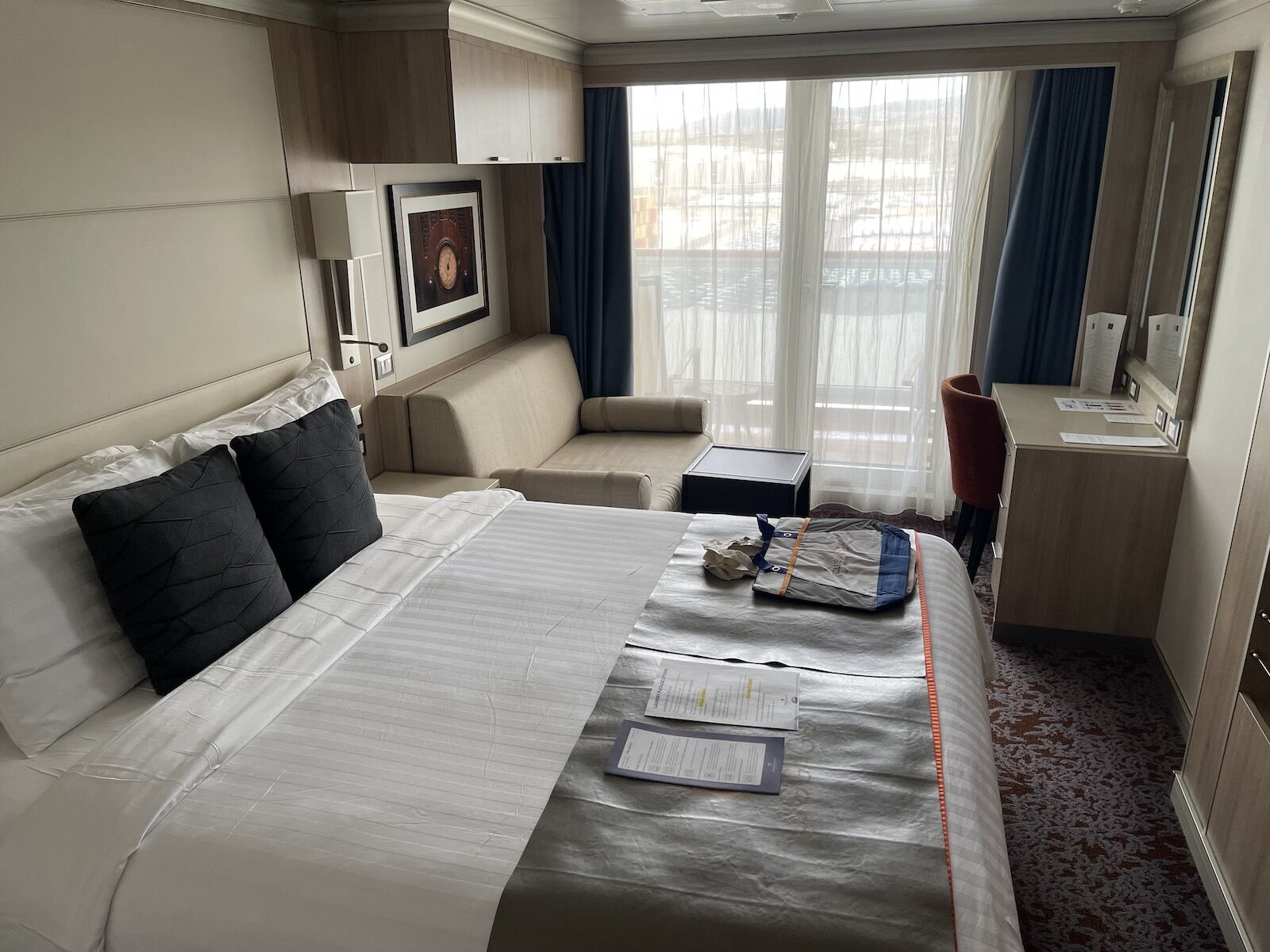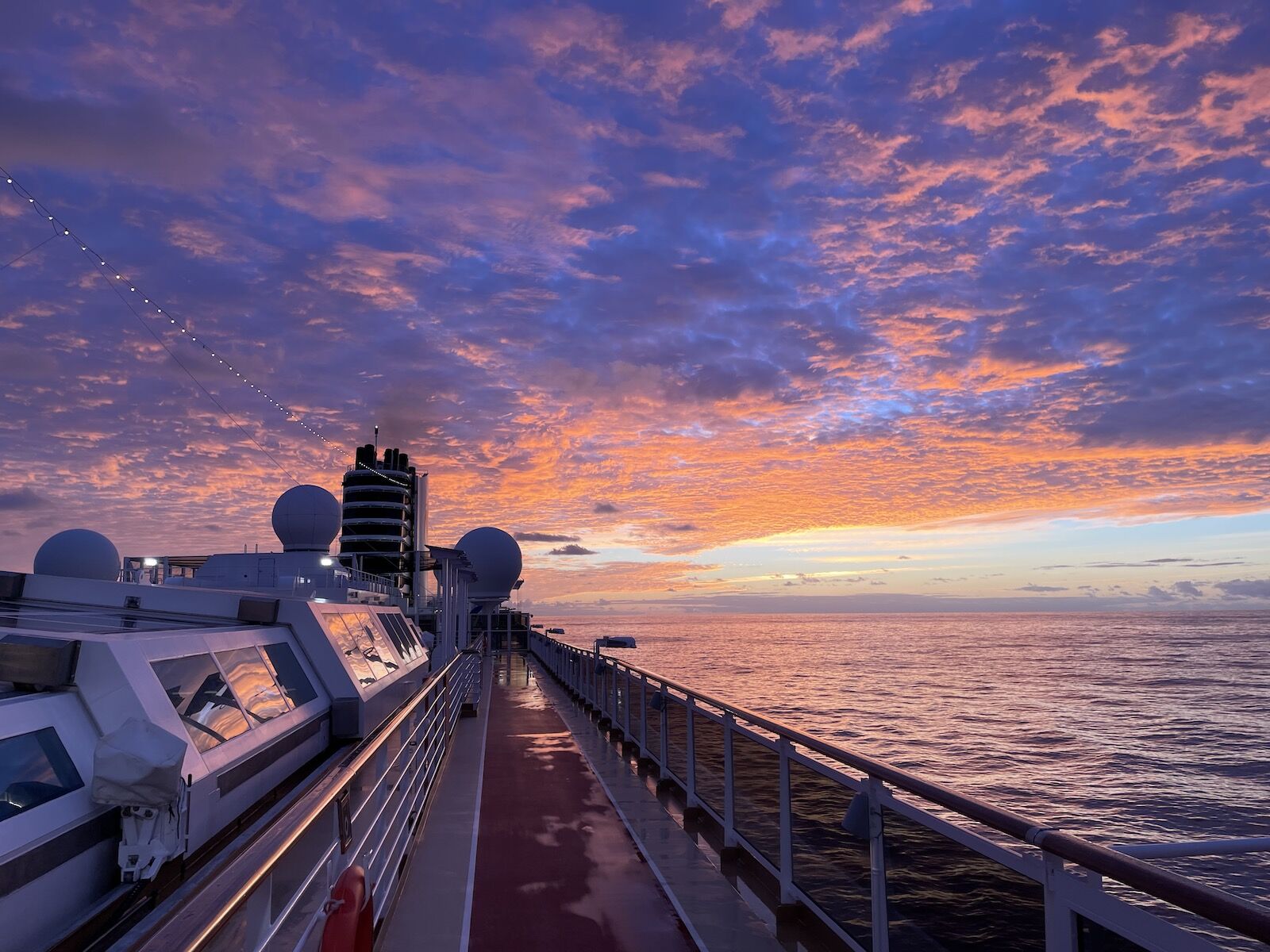Back in 2020, few things were scarier than catching COVID on a cruise ship. Today, it really isn’t so bad.
On November 26, 2023, I embarked on Holland America’s Nieuw Statendam for a 14-day transatlantic crossing. The voyage started from Rome, Italy, made stops in southern Spain and the Azores, and involved 10 days at sea, including seven consecutive days while crossing the ocean from Ponta Delgada, Azores, to Fort Lauderdale, Florida. Unfortunately, my last two days on board were spent masked and locked away in my cabin with what was likely COVID.
